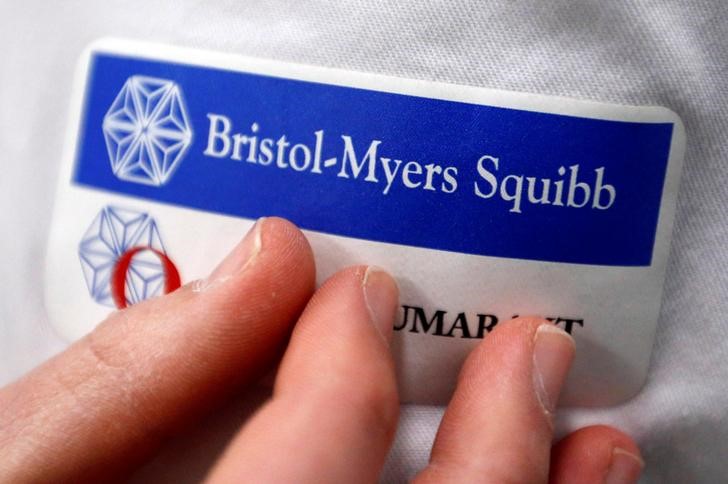IREN proposes $875 million convertible notes offering due 2031
PRINCETON, N.J. - Bristol Myers Squibb (NYSE: BMY), a prominent pharmaceutical company with a market capitalization of $116.28 billion and impressive gross profit margins of 75.87%, today shared successful outcomes from its Phase 3 trials of Sotyktu in treating active psoriatic arthritis (PsA). According to InvestingPro data, the company has demonstrated strong momentum with a 40.36% return over the past six months. The POETYK PsA-1 and POETYK PsA-2 trials demonstrated that a significantly higher proportion of patients treated with Sotyktu achieved a 20 percent improvement in disease signs and symptoms by Week 16 compared to those receiving a placebo.
The trials also met secondary endpoints relating to PsA disease activity, further reinforcing the drug's established safety profile. These findings mark the first Phase 3 clinical trial results for Sotyktu in a rheumatic condition. The drug is already approved in many countries for moderate-to-severe plaque psoriasis treatment, contributing to the company's substantial annual revenue of $47.44 billion. For deeper insights into BMY's pharmaceutical portfolio and financial health metrics, investors can access comprehensive analysis through InvestingPro's detailed research reports.
Roland Chen, MD, senior vice president at Bristol Myers Squibb, emphasized the need for effective oral treatments for PsA, a disease characterized by joint pain, swelling, and psoriatic skin lesions. The positive results from the trials suggest that Sotyktu could be the first TYK2 inhibitor for PsA patients.
The POETYK PsA-1 trial included approximately 670 biologic disease-modifying antirheumatic drug (bDMARD) naïve patients, while the POETYK PsA-2 trial enrolled around 730 patients, including those previously treated with TNFα inhibitor therapy.
Bristol Myers Squibb plans to present detailed data from these trials at upcoming medical congresses and will engage with health authorities based on these results. The company also expressed gratitude to the patients, investigators, and clinical trial sites involved in the studies.
Sotyktu, an oral, selective TYK2 inhibitor, is designed to inhibit signaling of interleukins involved in the pathogenesis of immune-mediated diseases. The drug's selectivity is achieved by targeting the regulatory domain of TYK2, distinguishing it from other JAK inhibitors.
The information in this article is based on a press release statement from Bristol Myers Squibb. The company currently offers an attractive dividend yield of 4.33% and has maintained dividend payments for 54 consecutive years. InvestingPro subscribers can access over 10 additional exclusive tips and comprehensive analysis about BMY's market position and growth potential, along with detailed research reports covering 1,400+ top stocks.
In other recent news, Bristol Myers Squibb has received approval from the European Commission for the use of Opdivo and Yervoy as a first-line treatment for certain types of colorectal cancer. This decision is based on the results from the Phase 3 CheckMate -8HW trial. In addition, the company's third-quarter earnings exceeded expectations, leading Bernstein SocGen Group and BMO Capital to raise the company's price target. However, CFRA downgraded Bristol Myers Squibb shares from Buy to Hold.
Bristol Myers Squibb recently acquired Karuna Therapeutics (NASDAQ:KRTX), initiating trials in schizophrenia and Alzheimer's. The company also plans to initiate three Phase 3 studies in 2024 and present Phase 1 data for CD19 NEX-T cell therapy. JPMorgan maintains its Overweight rating on Bristol-Myers Squibb (NYSE:BMY), highlighting the company's promising developments, particularly the launch of Cobenfy for schizophrenia treatment.
The company's Board of Directors approved an increase in the quarterly dividend, marking the 16th consecutive year of dividend increases. Meanwhile, CFRA has downgraded Bristol-Myers Squibb shares from Buy to Hold, despite the company's strong market position following the U.S. approval of Cobenfy for the treatment of schizophrenia in adults. These are all recent developments.
This article was generated with the support of AI and reviewed by an editor. For more information see our T&C.
